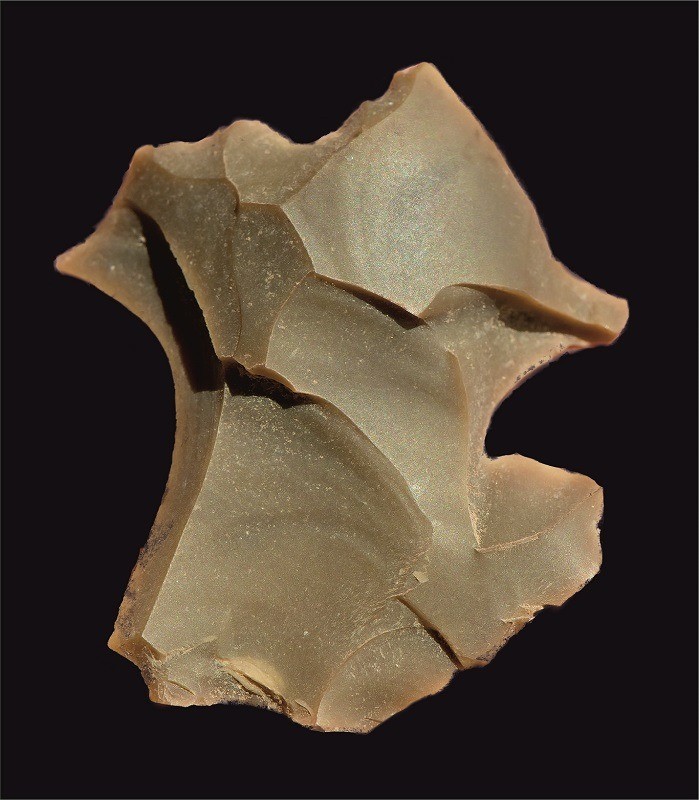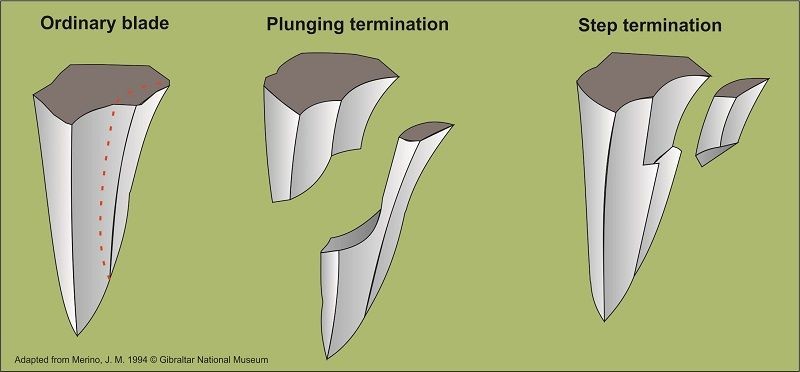Stone flake with knapping errors
Stone flake with knapping errors
For a long time, archaeology was dominated by a principle that we could call “Pretty Piece Syndrome”, in which only well-manufactured and aesthetically pleasing pieces were of interest. Other pieces such as waste products (ceramic firing failures, lithic reduction waste, etc.) or pieces in a poor state of conservation, were not the object of attention by archaeologists. This concept is nowadays outdated, and it is understood that the best way to know what has happened at an archaeological site is through the study of all finds and not just the aesthetically pleasing ones.
This flake, found at Gorham’s Cave in a level dated to approximately 50,000 years ago, was produced by a Neanderthal. The piece has its peculiarities – by observing its scars, which are product of previous extractions of pieces from it, we can deduce that it was not made by a very skilled knapper, or possibly, one who was still learning.
If we look at the negative scars on the flake, we can see how they form unusual shapes with abrupt terminations which are a result of errors in the knapping of the tool.
There are many errors which can lead to the appearance of fractures or deformations whilst knapping a stone tool, but we will focus on the most common ones which are in fact present in this piece. A very common error is that of the overshot flake, producing what is known as a plunging termination with a blunt edge. On the contrary, if the core is not struck with sufficient force, the fracture changes direction towards its surface instead of the intended point. This is known as a step termination.
These accidents do not always occur due to the knapper’s lack of skill but are sometimes also determined by the internal characteristics of the raw material. In some cases, they are carried out intentionally, such as the overshot extractions of North American Folsom points.

Neanderthal stone flake with knapping errors.

Common stone knapping errors.
Published: April 28, 2020
Other similar VM - Archaeology
18-20 Bomb House Lane
PO Box 939,
Gibraltar
